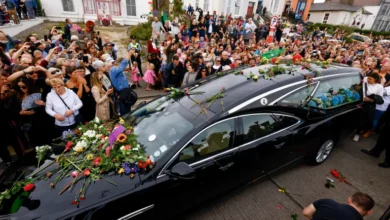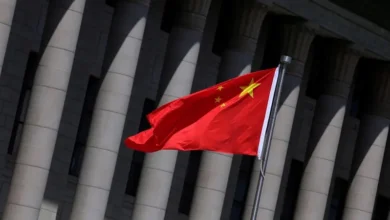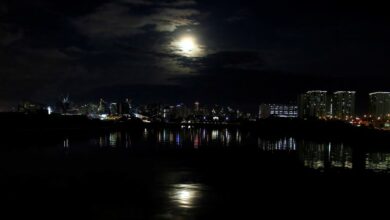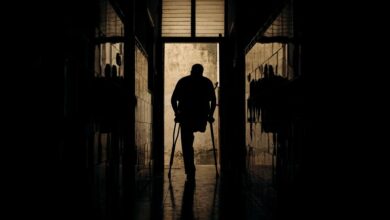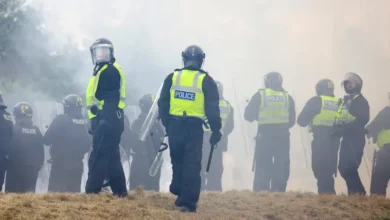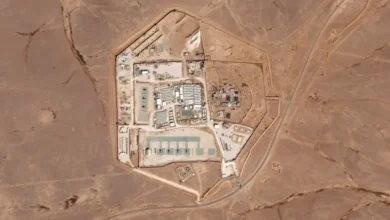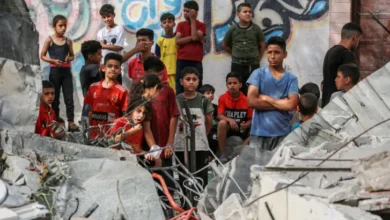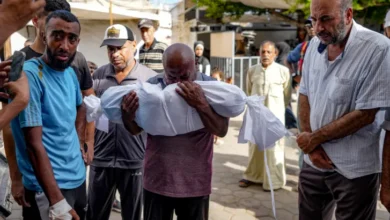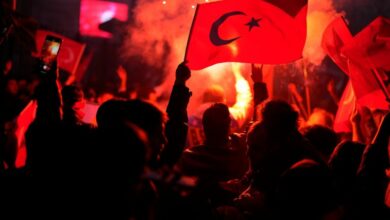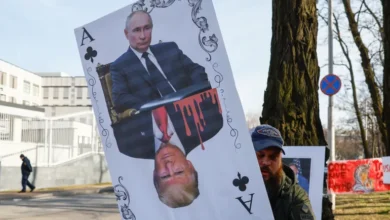Encamp, divest and keep your eyes on Gaza
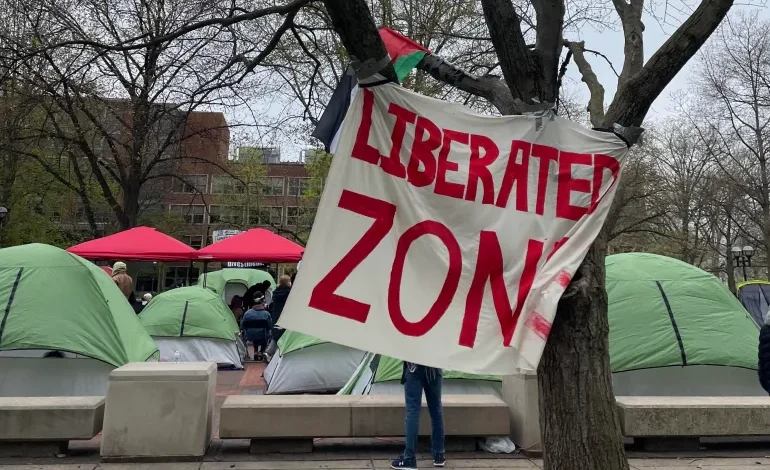
On April 22, students set up an encampment at the University of Michigan to demand the university’s complete and total divestment from genocidal Israel. They thus joined dozens of other universities across the United States in standing up in solidarity with the Palestinian people who are facing genocide at the hands of the Israeli army. Israeli forces have killed more than 34,500 Palestinians, including 14,500 children, in Gaza and nearly 490, including 124 children, in the occupied West Bank.
The protest has been joined by students of various ethnic and religious backgrounds, including Palestinians and Jews, people of Arab and South Asian descent and others. Many community members are spending time in and around the camp: to protect it, distribute food, and learn.
The encampment has become a site of mutual aid and support, discussion, and political education. Students are learning to organise together, setting up rotating schedules of patrol, medical and food services.
Over the last week, students have held teach-ins on topics ranging from problematic university investments to environmental colonialism, solidarity with other Indigenous groups like the Armenians, and poetry readings by Palestinians. Films, such as Israelism and The Present, are screened to bring awareness to current political schemes and realities of oppression. Like in other universities, we also set up a Palestine library where anyone can borrow books on Palestinian history or political thought and learn more about the liberation movement.
Thus far, the only disturbances by pro-Israel students have been sparse, their counterprotests garnering three to 10 attendees. They hold their Israeli flags proudly in the face of pickets that show the faces of killed Palestinians.
The encampment organisers have established their own police liaisons and legal observers with the belief that “we protect each other”. This has prevented any altercations that could lead to police intervention. The Michigan University administration has let the encampment be as long as it does not “disturb” graduation next week. Clearly, the murder of Palestinians is not considered disturbing.
Despite the non-violent nature of our encampment and similar ones across the country, accusations of anti-Semitism have been thrown at us, just as they have at all other protest actions on campuses across the country. But branding anti-genocide protests as anti-Semitic is not just absurd, it is dangerous.
Such a label conflates Judaism, a peaceful religion, with Zionism, a political ideology created in the 19th century. The conflation is dangerous, as it falsely maintains that all Jewish people support what the Israeli government and settlers are doing, denying the diversity within the community and feeding into “dual loyalty” conspiracy theories. As our encampments illustrate, this false equivalence cannot be further from the truth. On many campuses, Jewish groups have been at the centre of pro-Palestinian mobilisation.
We, Palestinians, did not pick the identity of our oppressors, and yet we are constantly asked to address the fears of anti-Semitism spreading. Do children in Gaza care what the religion is of the pilots in the Israeli fighter jets that rain bombs on them, killing their mothers and fathers?
We should not forget that white supremacy, has been, and continues to be, the biggest problem facing the Jewish community in the US and beyond. It is a simple fact that American officials and institutions continue to ignore.
We see more reaction from them over students protesting genocide than there was over “terrorists” killing innocent people at the Tree of Life Synagogue, or white supremacists strolling through the streets of Charlottesville and shouting anti-Semitic chants.
Why? Because if students of privilege are willing to throw themselves on the line for a Palestinian future at schools meant to curate the next generation of imperialists, then that means the colonial chokehold on Palestine, on American youth, on Western society as a whole is failing – and that frightens those who stand to benefit for Palestinian colonisation and colonisation across the Global South. If students are ready to fight for Palestine so vehemently, then they will not stop at that.
That is why, brute force has been used across the US to crack down on protests across campuses: from Columbia University and New York University to Emory University, the University of Texas in Austin and the University of Southern California.
However, rather than quell the uprising, the brutalisation of students and faculty has galvanised young people not just in the US but in other countries as well. With every arrest, every suspension, and every attempt to silence us, official institutions and university administrations have only broadened support for the Palestinian cause.
What is happening in Palestine is arguably the human rights issue of our time, and the US response to pro-Palestinian protests has made it the free speech issue of our time. Each student, each protester takes honour in advocating for Palestinian liberation, fighting US complicity in Israeli atrocities, and resisting colonialism.
Yet, we are under no illusion that what we are enduring during the struggle on campus compares in any way to the Israeli occupation.
Our peers in Gaza have not only lost family, friends, professors and fellow students, but they have also lost all their universities. Until their universities reopen, until they have the freedom to learn again, we will make our campuses the platforms of their voices to educate the world on their plight. Our tents, much like Palestine itself, are not going anywhere, remaining steadfast in the face of adversity until victory: total divestment from Israel and ultimately, the liberation of Palestine.
The smear campaign accusing us of anti-Semitism and police brutality will continue. But as these make headlines, we must remind ourselves and our supporters: all eyes must remain on Gaza.
The constant coverage of the student movement should not be allowed to divert attention from the systematic war crimes happening in Gaza. The focus must stay on the mass graves that continue to be discovered across the Gaza Strip, including at al-Shifa and Nasser hospitals; on the forced starvation of the Palestinian people as Israel continues to pretend to “increase” aid, but in reality is using it as a weapon of war; on the continuing Israeli bombardment which is killing children, women and men at a shocking rate on a daily basis; on the looming invasion of Rafah and Israeli attempts to cover up the crimes it is going to commit by pretending to have plans to “evacuate” the civilian population.
Amid these dark times, what is happening across US campuses fills me with inspiration and hope. This is what a Palestinian future can look like: Jews performing Passover rituals along Muslims praying Maghrib; community members of all creeds breaking bread together; people of all backgrounds taking part in collective liberation – a Palestine that existed before the British Mandate.
I dream of my homeland where I can sit in the shade of the trees my grandparents planted and see freedom, feel freedom. And this dream is moving closer to fulfilment every day.
